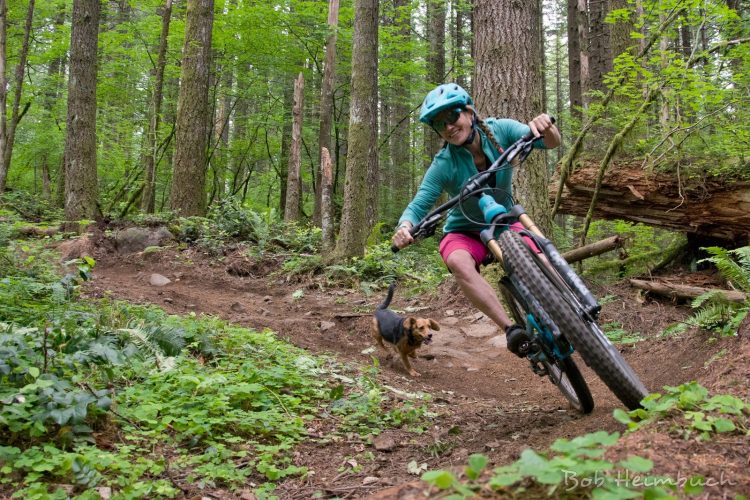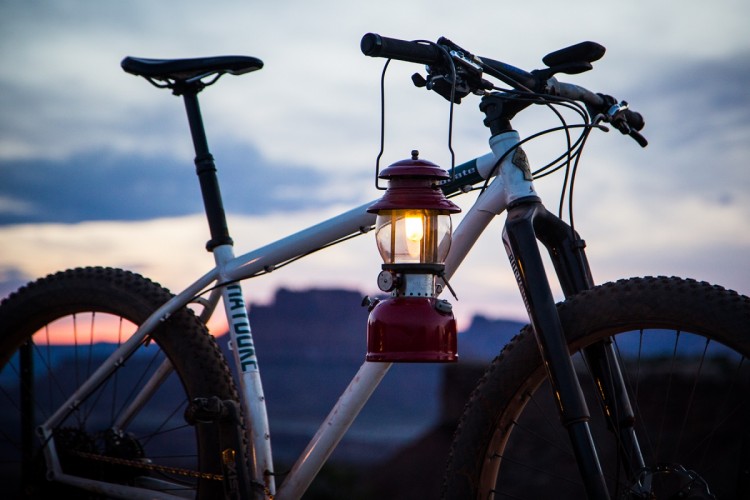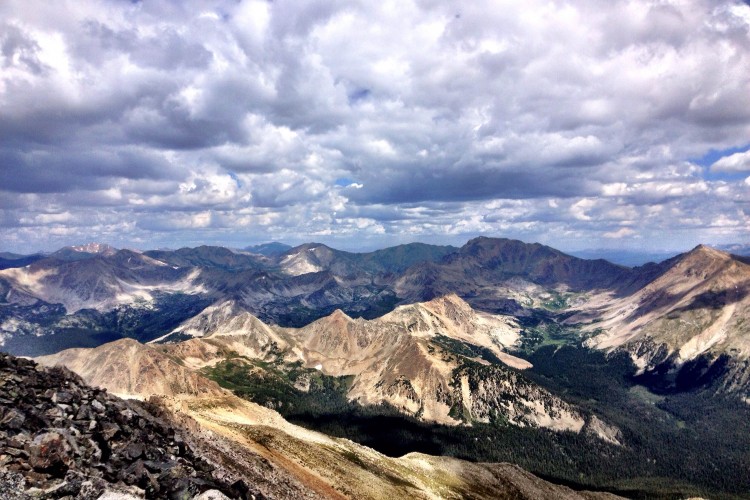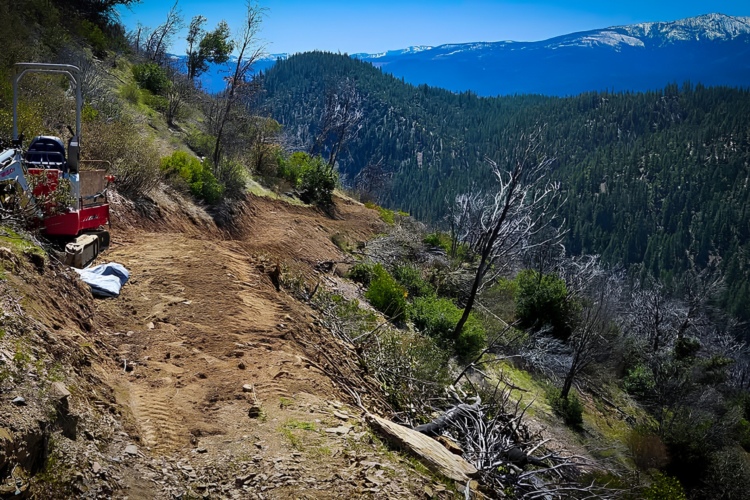
In response to the recent news that the Sustainable Trails Coalition’s bill has been introduced in Congress, IMBA has released a public statement that they say, “is intended for local IMBA chapter leadership who may have questions about this new Bill focused on mountain biking on federal lands.” Regardless of who it’s intended for, this post, titled “Bikes in Congressionally Designated Wilderness – A Dream for Some and a Nightmare for Others,” gives fresh insight into IMBA’s position on Wilderness.
The statement hinges on the fact that IMBA is publicly opposed to amending the Wilderness act in any way. Here’s what IMBA’s Mike Van Abel had to say:
“IMBA is also on record with the strong belief that amending the Wilderness Act comes not only with a risk of unintended consequences, especially political consequences and further polarization of the stewardship and outdoor recreation community, and is unnecessary to preserve mountain bike access while also achieving landscape level conservation. While we commend Senators Lee and Hatch for their interest, we also have deep concerns that there are other agendas that this Bill could facilitate, especially a public land seizure agenda.”
While IMBA is fearful of the unintended consequences, in principle they agree with many of the goals that the bill has, including redefining “bicycling as a ‘non-motorized form of transportation,” instead of lumping it in with all mechanized travel. Van Abel continues,
“The current language of S.3205 seeks to redefine bicycling as a “non-motorized” form of transportation. We applaud this. The ‘mechanized transport’ language codified in regulations written for the 1964 Wilderness Act is ill-defined and unnecessarily confusing to many public land managers. The effect of this ‘mechanized’ definition is human-powered bicycles being managed in the same manner as motorized forms of travel. And this land management approach to bicycling on trails has crept beyond wilderness landscapes.”
So how does IMBA think the Wilderness issue should be addressed? Essentially, Van Abel reiterated the strategy they announced back in February, which focuses on alternative designations and redrawing Wilderness boundaries. IMBA claims that pursuing other designations can more easily provide win-win scenarios, which they believe are superior to Wilderness designations due to the “political and legislative viability.”
But where does that leave mountain bike access in current Wilderness areas? In the exact same place.





















11 Comments
Jul 25, 2016
So the status quo doesn't polarize the stewardship and outdoor recreation community?
How does *including* another low-impact, human-powered user group add to polarization? The hikers and equestrians who don't want to share *their* trails with bikes will be polarized against bikes whether they are allowed or not, therefore this can not add to polarization, but only decrease it by bringing new Wilderness advocates into the fold.
"While we commend Senators Lee and Hatch for their interest, we also have deep concerns that there are other agendas that this Bill could facilitate, especially a public land seizure agenda.”
Please connect the dots for me on this one. There is zero in the bill that even remotely speaks to "public land seizure." Any such effort would be entirely independent from this one and the vast majority of the supporters of this bill would oppose it vehemently. I understand the distrust of the bill's sponsors, but read the language actually in the bill--otherwise it's a simple ad-hominem attack, which has no place in rational discourse.
and the most ridiculous statement of all . . . .
" . . . and is unnecessary to preserve mountain bike access . . . "
Do they really mean to say this with a straight face with the hundreds of (maybe even over a thousand) miles of traditional, popular singletrack lost in the last few years due to new Wilderness designation, Wilderness expansion and federal rulings on the administration of Wilderness Study Areas and Recommended Wilderness Areas? Credibility . . . shot to pieces!
Jul 26, 2016
Jul 25, 2016
Jul 25, 2016
Dec 14, 2017
Aug 1, 2016
Jul 29, 2016
The STC's bill is the simplest bill I've ever read. Nowhere does it imply or even slightly open up federal lands for privatization or transfer to the States. It reinforces the Wilderness Act in EVERY way.
I move to disband the IMBA. All in favor say "I"...
Jul 26, 2016
I have horsebacked, packed and hunted many of the wilderness areas and have spent weeks at times in there. It is an incredible adventure and there is nowhere on this earth that can compare! It needs to be left alone as is! It belongs to the wildlife not us.
I'm no tree hugger - I'm a gun toting, red blooded hunting, mountain biking American and believe that if you want access to these area - hike them!
I have seen what we (humans) will do once we get our grubby entitled self righteous hands on areas like this. While the intention may be valid - the fact of the matter is that the majority of people (and mountain bikers) are respectful - it's the small few (yes mountain bikers too) that will do irreversible damage to the whole ecosystem.
Just leave it alone as is!
Chris Sgaraglino
http://www.MyLifeOnTwoWehhels.com
Jul 29, 2016
The Wilderness Act was to preserve the RECREATION areas... it is not a Wildlife Sanctuary. That is another federal designation altogether. It is for us... as well as wildlife. And HUNTING in Wilderness? No way... you are not going to backpack out 1200 lbs of Elk or Moose without the use of a hand cart or a small army of humans. Horses cannot use the trails anymore because of beetle kill deadfall and low branches. Wilderness groups are specifically not maintaining the trails in a way that allow horses. Wilderness groups generally do not maintain trails further than 5 miles from a trailhead... the USFS has the data to back that up. 95% of trail mileage is not passable by horses... which means you're going off trail with your horse and destroying the land.
I live in Colorado and my home is surrounded by Wilderness restricted areas. The trails beyond 5 miles from a trailhead are disappearing at an alarming rate. The USFS cannot maintain them by themselves and the Wilderness groups are made up of 60 and 70 year olds who do not maintain the trails beyond a few miles.
The STC's bill protects and supports the Wildnerness designation the way it was intended by the authors back in the 1960s.
Jul 26, 2016
I understand where you’re coming from, but your position is not supported by the facts or even your own arguments.
“It is an incredible adventure . . . .”
Doing it on a bike makes it no less so, especially relative to horse travel, which you apparently support. At least a bike takes skill and fitness on the part of its rider, leaving the self-reliance aspect of the Wilderness experience intact. A horse, on the other hand, can deliver the least fit or competent person deep into the backcountry. In fact, there are entire commercial enterprises devoted to doing just that. The “adventure” angle does not support specifically banning bikes.
“It belongs to the wildlife not us.”
Agreed, but this also does not support specifically banning cyclists. Multiple independent studies have concluded that hiker and cyclist impact on wildlife is comparable and, in some cases, hikers actually disturb wildlife more than cyclists. From bighorn sheep to bald eagles, there is no significant difference in the rates or distances at which wildlife flushes as the result of a passing human on a bike or on foot. Moreover, it was noted that hikers are far more likely to go off trail, thus increasing the probability of disturbing wildlife and hikers are far more likely to actually deliberately approach wildlife. The “wildlife” angle does not support specifically banning bikes.
“– it’s the small few (yes mountain bikers too) that will do irreversible damage to the whole ecosystem.”
Just as multiple independent studies confirm the equality of impact on wildlife, more studies also equate hiker and biker impact on the environment, be it flora, fauna or the trails themselves.
This argument also applies equally to all user groups. Consider the damage done by forest fires—habitat lost, ecosystems wasted, tens of thousands of acres destroyed—then look at who has been responsible for these most destructive of all human-caused tragedies. Hikers, campers, in short – people on foot, not bikes. The “damage” angle does not support specifically banning bikes.
Aug 23, 2016